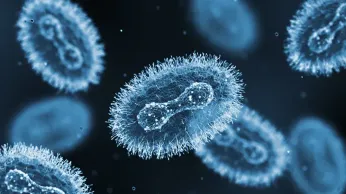
Nov 3
Mpox Isn’t Over: What Chicago and California’s Latest Outbreaks Mean for Queer Communities in 2025
READ TIME: 3 MIN.
Just when we thought we could cross mpox off our collective worry list, the virus has crashed the party again. This autumn, Chicago and Southern California have seen a surge in cases, including the more severe clade I strain—sparking concern, confusion, and a sense of déjà vu for many in LGBTQ+ spaces. But if there’s one thing our community knows, it’s how to turn crisis into connection, and stigma into strength.
Let’s start with the numbers: from June through September 30, 2025, Chicago has reported 104 cases of mpox—more than the previous two years combined for the same period . The city’s health department says the median age of those diagnosed is 34, and the vast majority are men. Sexual transmission remains the primary route, making the outbreak especially relevant to sexually active gay and bisexual men .
Dr. Mia Hernandez, a community health advocate, puts it bluntly: “We cannot afford to let mpox fade into the background. Our queer communities—especially men who have sex with men—are still at the forefront of this epidemic, and we need to keep talking, testing, and getting vaccinated.”
While Chicago’s outbreak is alarming, California has added a worrying twist: three cases of the more severe clade I mpox were identified in October 2025, none with travel history or known contact among each other—a strong sign of community spread . All three patients required hospitalization, but are now recovering . This is the first time clade I has shown up like this in the U.S. outside of travelers, making it a public health curveball .
Clade I is not currently shown to be more transmissible than the clade II strains that drove the 2022-2024 outbreaks, but it can be more severe, particularly for immunocompromised people . Public health departments are hustling: enhanced surveillance, contact tracing, and clear messaging are underway to stop further spread .
For those who remember 2022, this all feels uncomfortably familiar—but there’s one crucial difference: we’re better prepared. The mpox vaccine (JYNNEOS®) is widely available at sexual health clinics and pharmacies across the country, and cities like Chicago are hosting pop-up vaccination events throughout October . Vaccination is especially encouraged for gay and bisexual men and other men who have sex with men, who remain at the highest risk .
But vaccines alone aren’t enough. As Dr. Jamal Singh, a sexual health physician in LA, notes: “Getting vaccinated is an act of queer love. It’s about protecting yourself and the people you care about—chosen family, partners, lovers, and the stranger you meet at the club.”
It’s also about fighting stigma. Mpox is a virus, not a moral judgment. The queer community has long faced blame during health crises—from HIV/AIDS to COVID-19—and this history makes it all the more important to center compassion and science, not shame.
So what’s next? First, mpox is not just a “gay disease,” though data consistently show it disproportionately affects men who have sex with men . Transmission can also occur through non-sexual close contact, shared living spaces, or personal items .
Second, the best way to keep ourselves and our communities safe is to stay informed and proactive:
- If you’re eligible, get vaccinated. Check your local health department or the CDC’s mpox vaccine locator.
- Talk about mpox openly with friends, dates, and community groups—information is power.
- If you have symptoms (like rash or fever), get tested and stay home until you have answers .
- Don’t let stigma silence you—shame is the virus that spreads fastest.
This moment is about more than epidemiology; it’s about resilience. As queer filmmaker and activist Leo Torres says, “We’ve seen this script before. But we get to write the ending this time—with more pride, more science, and more glitter than ever.”
Worldwide, the World Health Organization reports nearly 3,800 cases and 15 deaths across 59 countries as of September 2025 . The virus isn’t done with us, but we’re not done fighting, either.
As we navigate this latest outbreak, remember: queer joy, community, and care are still the most powerful medicine. Whether you’re showing up at a vaccine pop-up, sharing the latest updates in your group chat, or just checking in on your friends—every act of solidarity matters. The story isn’t over, but it’s ours to tell.






